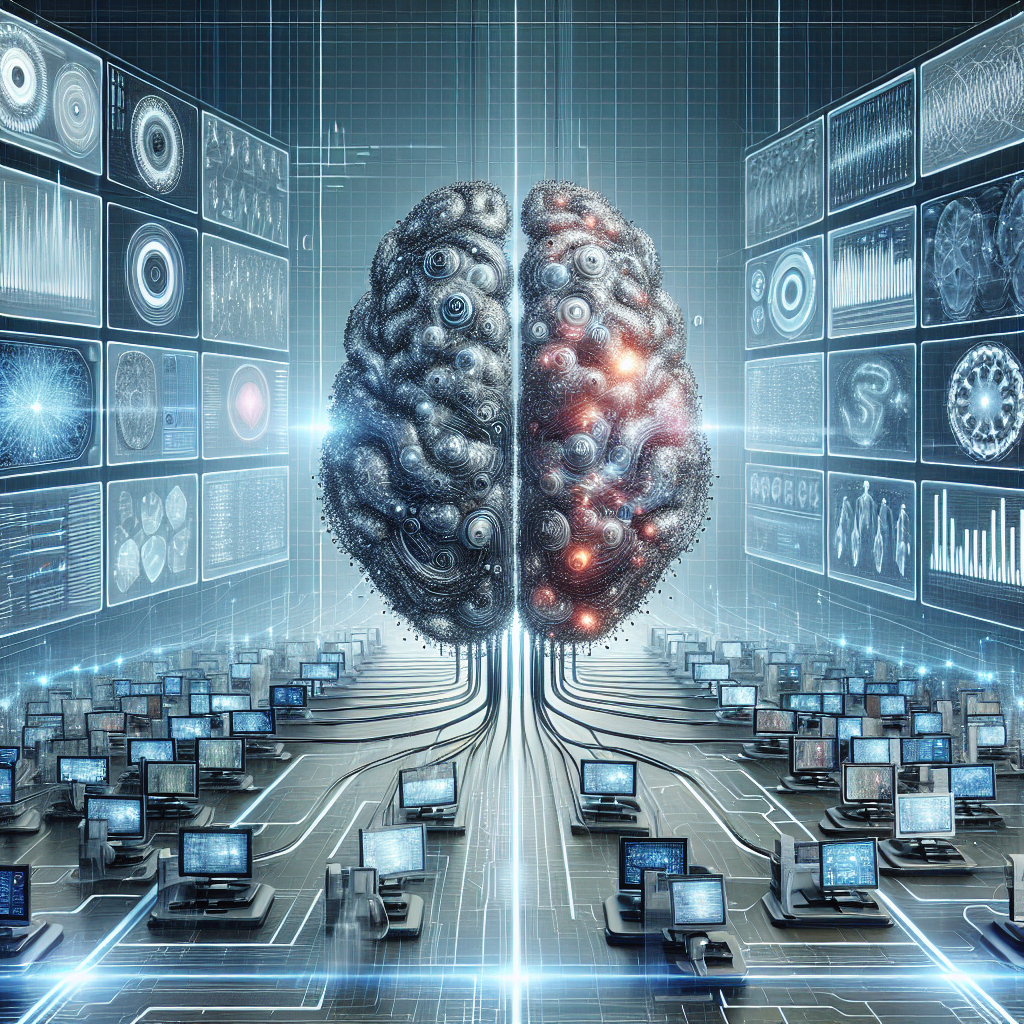In recent years, the healthcare industry has been facing an increasing number of crises, from natural disasters to pandemics. These crises often overwhelm healthcare systems and require rapid and effective response strategies to mitigate their impact on patients and communities. Artificial Intelligence (AI) has emerged as a powerful tool in crisis management, enabling healthcare organizations to better prepare for, respond to, and recover from emergencies.
AI technologies can help healthcare organizations in various aspects of crisis management, including early detection and monitoring of outbreaks, resource allocation and management, patient triage, decision support for healthcare professionals, and communication with the public. By leveraging AI, healthcare organizations can enhance their ability to predict, detect, and respond to crises in a timely and efficient manner.
One of the key applications of AI in crisis management is in early detection and monitoring of outbreaks. AI algorithms can analyze large volumes of data from various sources, such as electronic health records, social media, and internet searches, to identify patterns and trends that may indicate the onset of a crisis. For example, AI can be used to analyze social media posts and news articles to detect early signs of a disease outbreak or to monitor the spread of infectious diseases in real-time.
AI can also assist healthcare organizations in resource allocation and management during crises. By analyzing data on patient admissions, bed availability, medical supplies, and staff availability, AI algorithms can help healthcare organizations optimize the allocation of resources to where they are most needed. This can help healthcare organizations better prepare for and respond to crises by ensuring that resources are allocated efficiently and effectively.
In addition, AI can support patient triage during crises by helping healthcare professionals prioritize patients based on their condition and urgency of care. AI algorithms can analyze patient data, such as symptoms, vital signs, and medical history, to assist healthcare professionals in making informed decisions about patient care. This can help healthcare organizations better manage patient flow during crises and ensure that patients receive timely and appropriate care.
Furthermore, AI can provide decision support for healthcare professionals during crises by analyzing data and providing recommendations for diagnosis, treatment, and management of patients. By leveraging AI, healthcare professionals can access the latest evidence-based guidelines, best practices, and treatment protocols to make informed decisions in high-pressure situations. This can help healthcare organizations improve the quality of care and outcomes for patients during crises.
Moreover, AI can support communication with the public during crises by analyzing social media posts, news articles, and other sources of information to provide real-time updates and guidance to the public. By leveraging AI, healthcare organizations can disseminate accurate information, address misinformation, and engage with the public to promote awareness and adherence to public health measures during crises. This can help healthcare organizations build trust and credibility with the public and enhance their ability to effectively respond to crises.
Overall, AI has the potential to revolutionize crisis management in healthcare by enhancing the ability of healthcare organizations to predict, detect, and respond to crises in a timely and effective manner. By leveraging AI technologies, healthcare organizations can better prepare for, respond to, and recover from emergencies, ultimately improving the quality of care and outcomes for patients and communities.
FAQs:
Q: What is Artificial Intelligence (AI) and how is it used in healthcare crisis management?
A: Artificial Intelligence (AI) is a branch of computer science that focuses on the development of intelligent machines that can perform tasks that typically require human intelligence, such as learning, reasoning, problem-solving, and decision-making. In healthcare crisis management, AI is used to analyze large volumes of data, identify patterns and trends, provide decision support for healthcare professionals, and facilitate communication with the public.
Q: How can AI help healthcare organizations in early detection and monitoring of outbreaks?
A: AI can help healthcare organizations in early detection and monitoring of outbreaks by analyzing data from various sources, such as electronic health records, social media, and internet searches, to identify patterns and trends that may indicate the onset of a crisis. By leveraging AI, healthcare organizations can detect early signs of a disease outbreak, monitor the spread of infectious diseases in real-time, and take proactive measures to prevent the escalation of a crisis.
Q: What are some of the key applications of AI in crisis management?
A: Some of the key applications of AI in crisis management include early detection and monitoring of outbreaks, resource allocation and management, patient triage, decision support for healthcare professionals, and communication with the public. By leveraging AI, healthcare organizations can enhance their ability to predict, detect, and respond to crises in a timely and efficient manner.
Q: How can AI support patient triage during crises?
A: AI can support patient triage during crises by helping healthcare professionals prioritize patients based on their condition and urgency of care. AI algorithms can analyze patient data, such as symptoms, vital signs, and medical history, to assist healthcare professionals in making informed decisions about patient care. This can help healthcare organizations better manage patient flow during crises and ensure that patients receive timely and appropriate care.
Q: How can AI assist healthcare professionals in decision-making during crises?
A: AI can assist healthcare professionals in decision-making during crises by analyzing data and providing recommendations for diagnosis, treatment, and management of patients. By leveraging AI, healthcare professionals can access the latest evidence-based guidelines, best practices, and treatment protocols to make informed decisions in high-pressure situations. This can help healthcare organizations improve the quality of care and outcomes for patients during crises.

